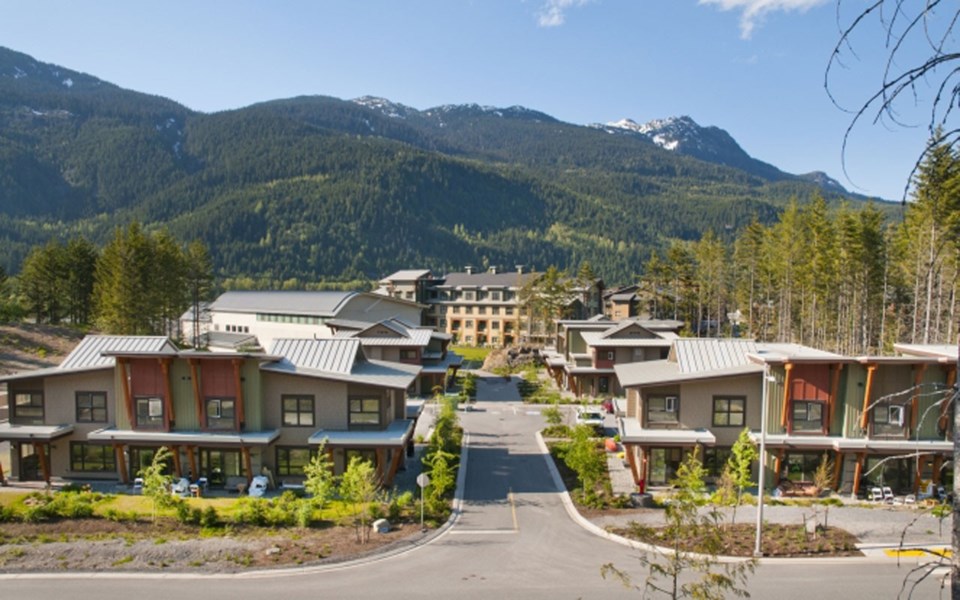It's not news that there is a housing crisis and resulting staff shortage in the resort.
Longtime businesses such as Windsor Plywood are no longer open seven days a week, the meat and deli sections at our local grocery stores sometimes close early, and construction machines idle due to a lack of operators.
And it's also not news that the issue of affordable housing is certainly province-wide, if not nation-wide.
Indeed, for almost as long as Pique has been reporting—over two decades—the issue of housing has been in the headlines.
But here in the resort, thanks to forward-thinking politicians, local municipal staff and others, we were given a way out of it when the province gifted the Resort Municipality of Whistler (RMOW) a 300-acre (121-hectare) land bank ahead of the 2010 Winter Olympic and Paralympic Games as a legacy, and as a place to build the $165-million athletes' village.
Those in leadership positions at the time no doubt pinched themselves at their good fortune and did what any sensible person would do: They looked around for experts to get their dream neighbourhood up and running for the Games and for the hundreds of families who would call it home afterwards. Then the council of the day decided to set up an arm's-length organization to build the new neighbourhood.
After all, municipal government is not an expert in construction and development, nor does staff really have time to become developers.
In 2004, a dream team was in place at the newly formed Whistler 2020 Development Corporation (WDC), of which the RMOW was the sole shareholder. It was a separate entity with no political connection to the local bureaucrats.
Eric Martin, Jim Moodie, Steve Bayly, Jim Godfrey and others have been deeply involved over the last 14 years. And let's just refresh you on their expertise: Martin was VP of Bosa Developments; Moodie was involved in the original planning of Whistler and was a driving force behind the Audain Art Museum; Bayly is a life-long developer here and a founding member of the Whistler Housing Authority (WHA); and Godfrey was Chief Administrative Officer for the RMOW and also a founder of the WHA.
Could we be in better hands as we move into developing Phase 2 of Cheakamus for affordable, employee-restricted housing with this team involved?
But this week, the WDC board resigned.
"From recent presentations to Council by staff and the WHA, it appears that the RMOW wants to move in a different direction, which it has complete discretion to do," stated the WDC letter in this week's council package.
Reading between the lines, there can be little doubt that the WDC board is not in complete agreement with the RMOW's plan for Cheakamus. One wonders if the WDC has been put aside. Think back to the January council meeting when updates were given by the municipality and the WHA, but the WDC was left off council's agenda even though a morning briefing had been given that same day to local leaders and staff. This despite a resolution made in December that the WDC would present its updated business plan at that January meeting.
WDC has been working with RMOW staff since at least July of 2017 to get a plan in place. It amended its business plan update so that the WHA could get new housing built in Cheakamus on lots slated to be sold for market development. This re-directed $8 million away from the WDC's debt repayment plan.
Now there is no formal plan for how to retire that roughly $8 million in outstanding debt. Let's not forget that the current Cheakamus neighbourhood was paid for mostly from the $68.5 million from sales of resident-restricted housing and the planned market sales of $36.5 million.
The plan has always been to sell housing, both market and restricted, to pay for development and growth. Indeed, WDC's letter of resignation specifically advises that no funds are borrowed for future development.
(Just to play Devil's advocate, the retirement of the debt for the Olympic Village development was a promise made to taxpayers by WDC and one the board took very seriously.)
The RMOW has this to say about funding sources going forward: "Funding options will be considered including rental revenue potential, possible land and/or home sales, and other funding sources including the possible opportunity for grants from senior levels of government, both provincially and federally."
In other words, there is no funding currently in place and we are talking several millions of dollars needed here to get the ball rolling.
So when will shovels be in the ground if all the moving parts come together? Well, probably in late 2020.
Hovering above all of this is the upcoming municipal election, which will include the election of a new mayor.
Community voices need to be heard loud and clear as Whistler moves forward with its vision for affordable housing. Fortunately for us, the former WDC board members have a deep passion for our hometown and it's my hope they will stay in the wings, as their advice and experience is invaluable.
And I, for one, would like to acknowledge the great debt Whistler owes them and thank them for the many years of service with WDC, and for the bustling and welcoming neighbourhood of Cheakamus Crossing.




